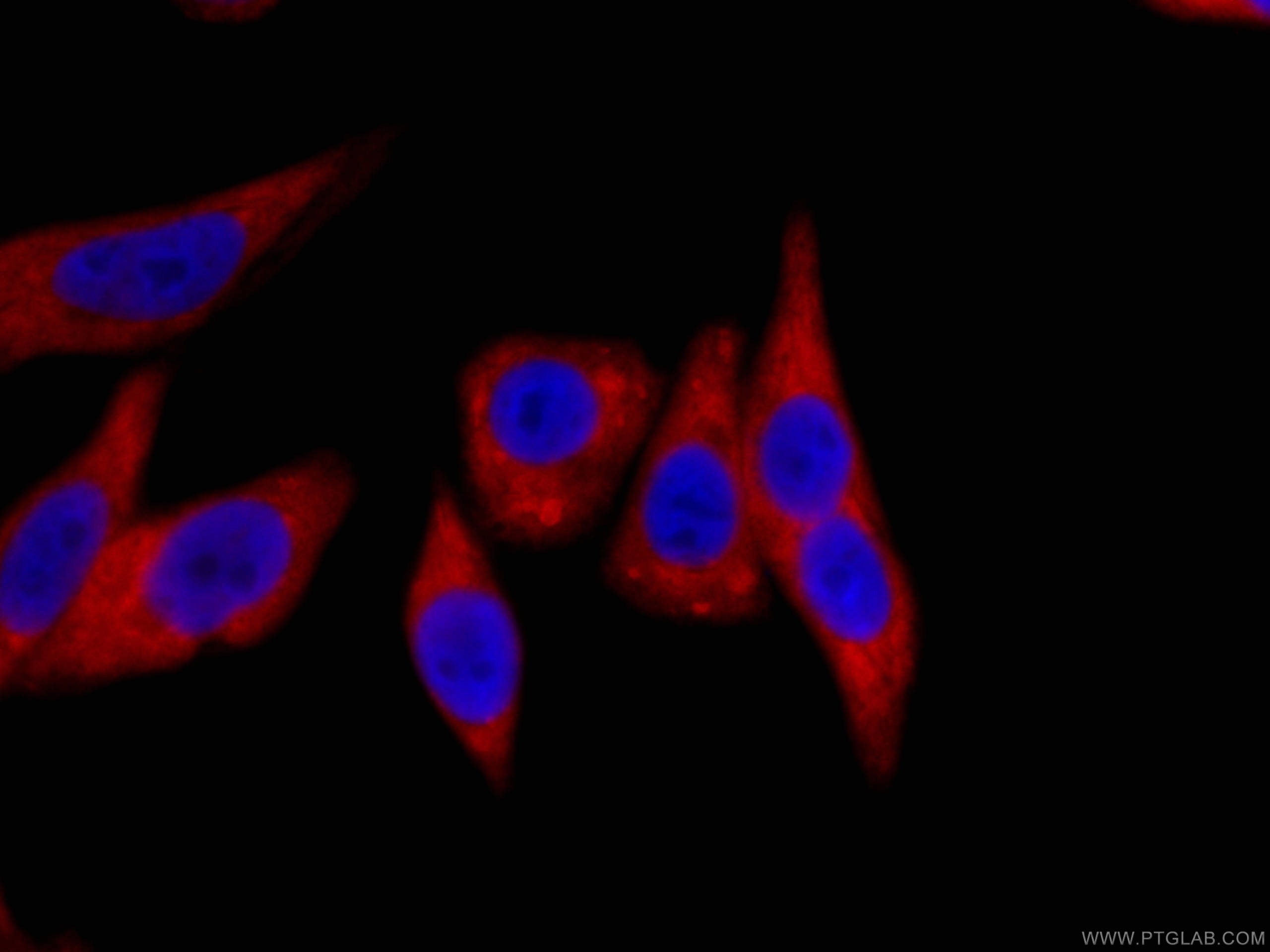Anticorps Monoclonal anti-HSP90
HSP90 Monoclonal Antibody for IF/ICC
Hôte / Isotype
Mouse / IgG2a
Réactivité testée
Humain, porc, rat, souris
Applications
IF/ICC
Conjugaison
CoraLite®594 Fluorescent Dye
CloneNo.
3F11C1
N° de cat : CL594-60318
Synonymes
Galerie de données de validation
Applications testées
| Résultats positifs en IF/ICC | cellules HepG2, |
Dilution recommandée
| Application | Dilution |
|---|---|
| Immunofluorescence (IF)/ICC | IF/ICC : 1:50-1:500 |
| It is recommended that this reagent should be titrated in each testing system to obtain optimal results. | |
| Sample-dependent, check data in validation data gallery | |
Informations sur le produit
CL594-60318 cible HSP90 dans les applications de IF/ICC et montre une réactivité avec des échantillons Humain, porc, rat, souris
| Réactivité | Humain, porc, rat, souris |
| Hôte / Isotype | Mouse / IgG2a |
| Clonalité | Monoclonal |
| Type | Anticorps |
| Immunogène | HSP90 Protéine recombinante Ag3826 |
| Nom complet | heat shock protein 90kDa alpha (cytosolic), class A member 1 |
| Masse moléculaire calculée | 853 aa, 90 kDa |
| Poids moléculaire observé | 85-90 kDa |
| Numéro d’acquisition GenBank | BC023006 |
| Symbole du gène | HSP90 |
| Identification du gène (NCBI) | 3320 |
| Conjugaison | CoraLite®594 Fluorescent Dye |
| Excitation/Emission maxima wavelengths | 588 nm / 604 nm |
| Forme | Liquide |
| Méthode de purification | Purification par protéine A |
| Tampon de stockage | PBS with 50% glycerol, 0.05% Proclin300, 0.5% BSA |
| Conditions de stockage | Stocker à -20 °C. Éviter toute exposition à la lumière. Stable pendant un an après l'expédition. L'aliquotage n'est pas nécessaire pour le stockage à -20oC Les 20ul contiennent 0,1% de BSA. |
Informations générales
HSP90, encoded by HSP90AA1, is a constitutively and ubiquitously expressed molecular chaperone that is crucial for the stability and function of many proteins. HSP90 provides chaperoning activity for client proteins; many of them are members of oncogenic pathways, indicating its implication in tumor malignancy. HSP90 mainly resides in the cytosol, while it can also be released to the extracellular space. Secreted Hsp90 is a C-terminal truncated form. It has been reported that the level of plasma Hsp90 is positively correlated with tumor malignancy in clinical cancer patients, and can be a promising diagnostic marker for tumor malignancy in clinical application. This antibody may cross-react with HSP90AB1 due to the high homology between them.
Protocole
| Product Specific Protocols | |
|---|---|
| IF protocol for CL594 HSP90 antibody CL594-60318 | Download protocol |
| Standard Protocols | |
|---|---|
| Click here to view our Standard Protocols |


